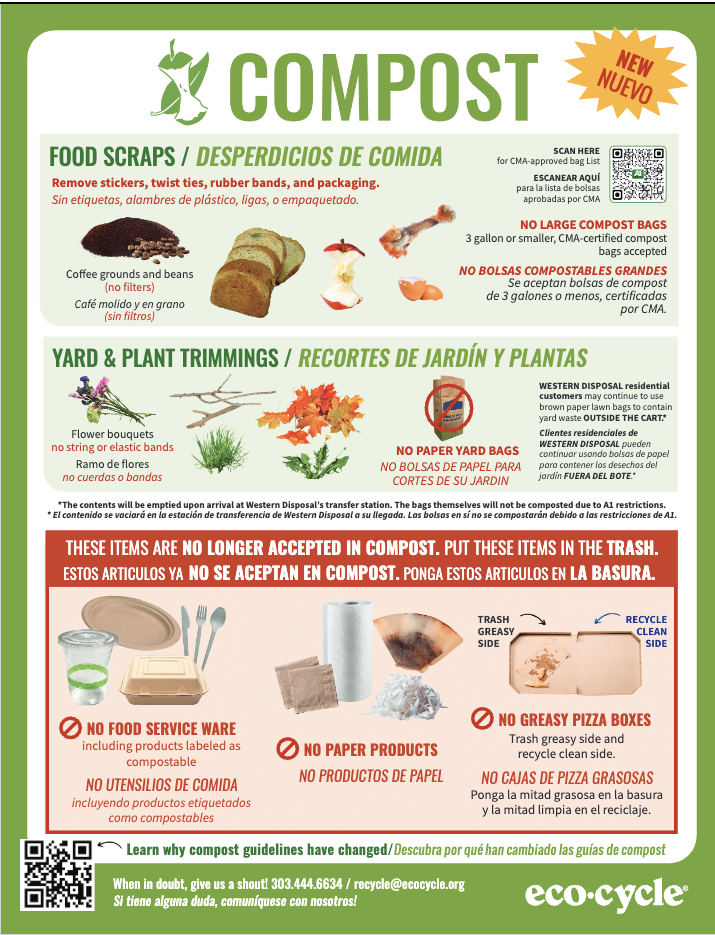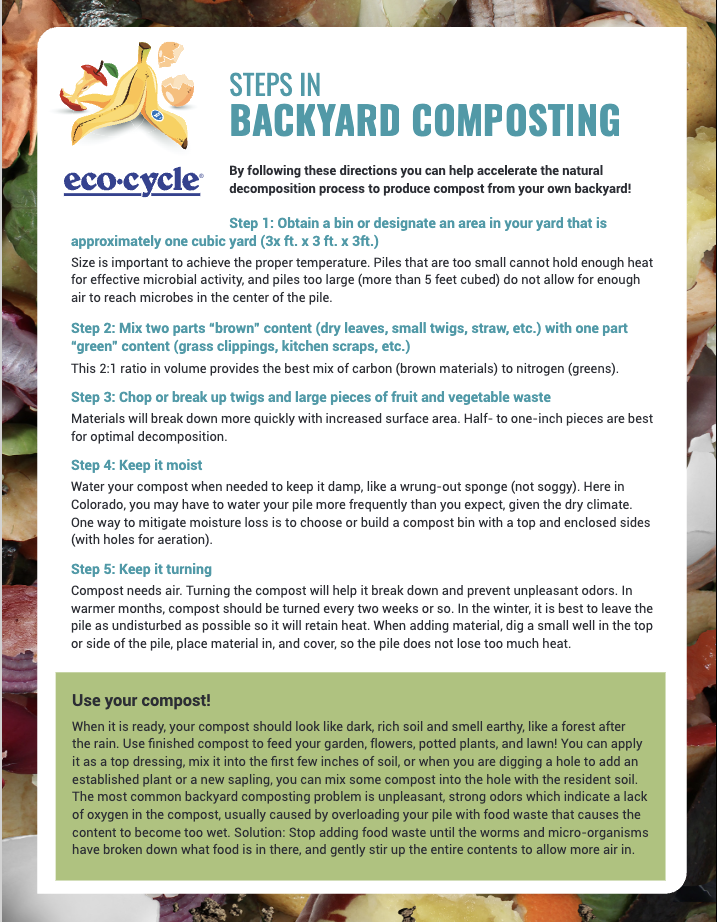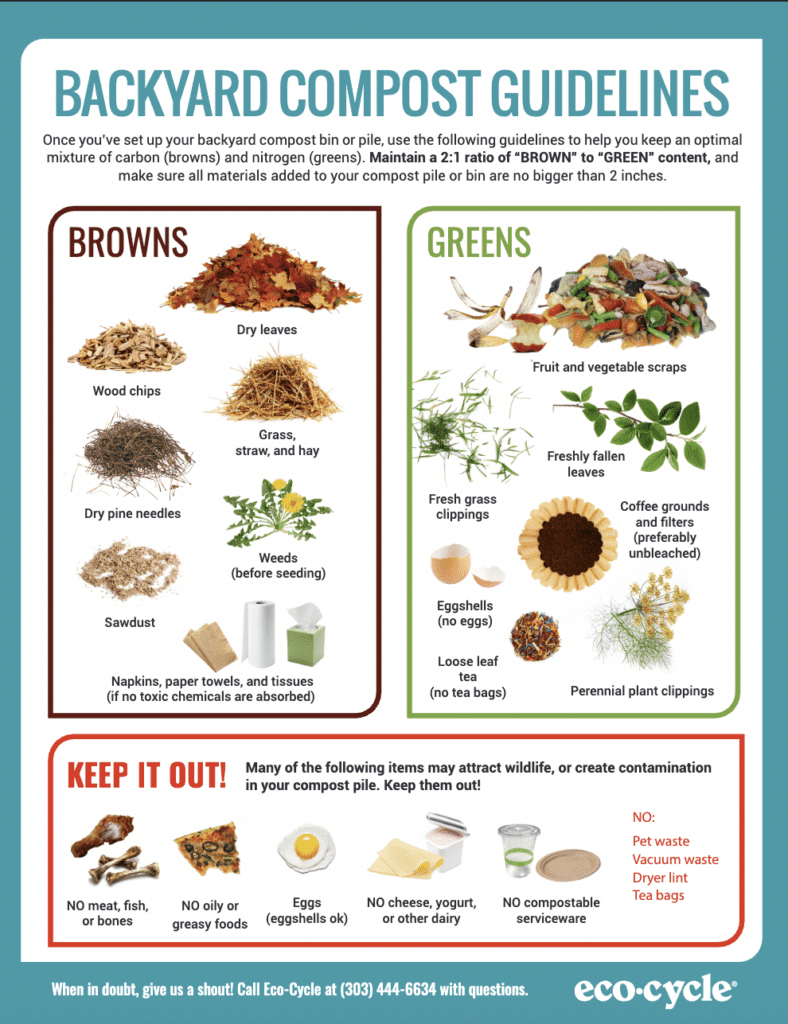Keep Contamination from Creeping into Your Compost
Composting—whether through curbside service, a drop-off center, or in your own backyard—turns a climate problem into a climate solution!
In the landfill, organic materials create a climate problem
Organic materials like food scraps, yard clippings, and some low-grade paper products (like paper towels and napkins) are good at breaking down into compost, but they need water and oxygen to do it. However, landfills are designed to be airtight—so instead of decomposing like they would in an oxygen-rich environment, organics in the landfill decompose anaerobically, or without oxygen, and emit methane in the process. Methane is a greenhouse gas that has a heat-trapping capacity 84 times more powerful than carbon dioxide in the first 20 years or so!
Once made into compost, organic materials become a hopeful climate solution
Putting organics into your compost bin prevents landfill methane emissions, reducing climate change impacts. And applying finished compost to soils—gardens, lawns, farms, etc.—helps sequester carbon dioxide that’s already in the atmosphere—helping to reverse climate change!
Keep your compost clean
Just like recycling, curbside compost is taken to a local facility that has its own unique combination of equipment and technology. In some communities, the local compost facility accepts food scraps, yard trimmings, coffee filters, paper towels and napkins, and certified compostable cups, plates, and containers. In other communities, the local compost facility may only accept food scraps. That’s why it’s important to check your local compost guidelines! View curbside compost guidelines for Colorado Front Range communities below.
For example, the compost manufacturer for Colorado Front Range communities simplified their compost guidelines in April 2023 in order to drastically reduce contamination. Residents and businesses in this region can now put only food scraps and yard trimmings (and 3-gallon or smaller certified compostable bags) in their curbside compost bins.
Common Compost Contaminants
What you put into your compost bin is used to create a finished compost amendment that’s applied to gardens and farmland—or even to your lawn! When compost streams are contaminated with non-organic materials—such as glass, metal, or even small plastic produce stickers—tiny pieces of those materials end up in the finished compost product. No one wants to grow their food amongst plastic pieces, or spread tiny glass shards across their lawn! It is FAR more difficult to remove contaminants from compost than it is from recycling (imagine what equipment could remove plastic produce stickers), so it’s up to all of us to make sure we are keeping non-organic materials out of our compost carts.
How to Compost in Your Backyard
Composting in your backyard is easy! You prevent methane emissions at landfills AND create a free, high-quality compost amendment that your lawn, garden, and flower beds are hungry for. If you have space for a compost pile or bin, you could be composting from your own backyard!
If you live in a community where your local curbside compost guidelines allow only food scraps and/or yard trimmings (such as Colorado Front Range communities) you’re prevented from adding to your curbside bin items such as paper towels, napkins, coffee filters, and other uncoated papers. However, you CAN add these items to your backyard compost bin!
Avoid putting bones, meat, dairy, and compostable plates, cups, etc. in your backyard compost pile—these items can attract wildlife or take too long to break down, and are more suitable for industrial/curbside composting.





